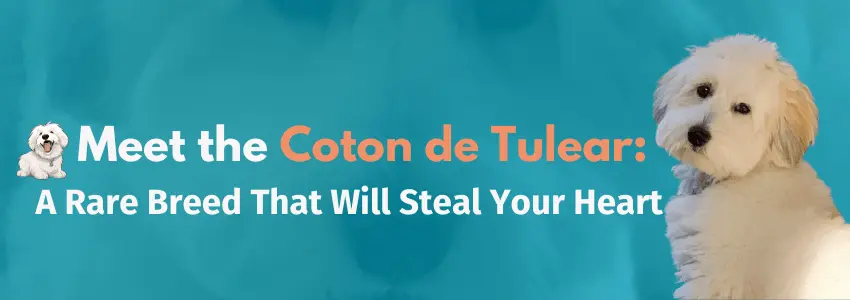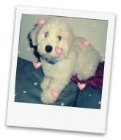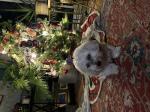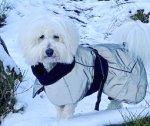Can Dogs Eat This?
A Guide to What Your Dog Can and Cannot Eat
Are you curious about what foods are safe for your dog to eat? I get questions all the time about whether dogs can eat this or that.
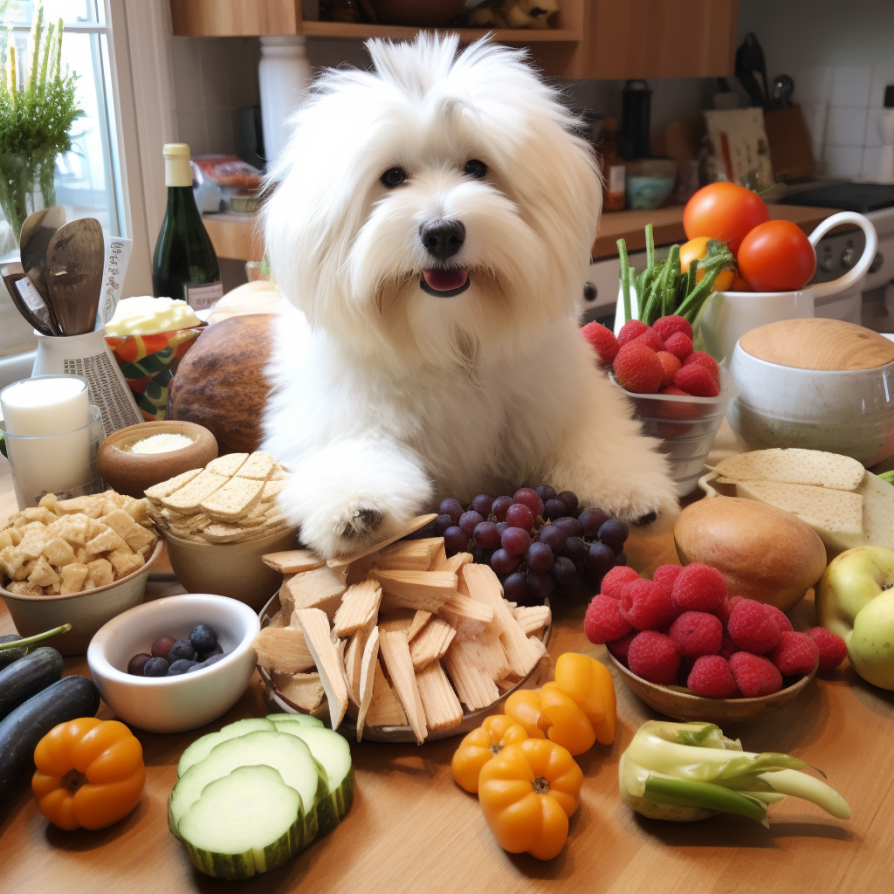
I can tell you from personal experience that you don't want to learn if a certain food is safe the hard way. A while back, my adorable puppy, Lucy, and I were hanging out in the kitchen when, oops! I accidentally dropped some grapes on the floor.
In a flash, Lucy zoomed over, eager to grab a treat. Did she gobble them up? I couldn't be sure.
So, I phoned the vet, who advised me to bring her in immediately.
What followed was a day filled with anxiety and urgency as the vet team worked tirelessly to pump Lucy's stomach. We were bracing ourselves for potential nightmares – kidney failure or worse. Trust me, it's an ordeal you wouldn't want to go through!
As it turned out, they didn't find any evidence of the grapes in her stomach, but this was so stressful that I don't think I'll ever bring grapes into the house again.
As a dog owner, it's essential to know which human foods can be harmful to your dog's health. While some human foods can be a healthy addition to your dog's diet, others can be toxic and even fatal.
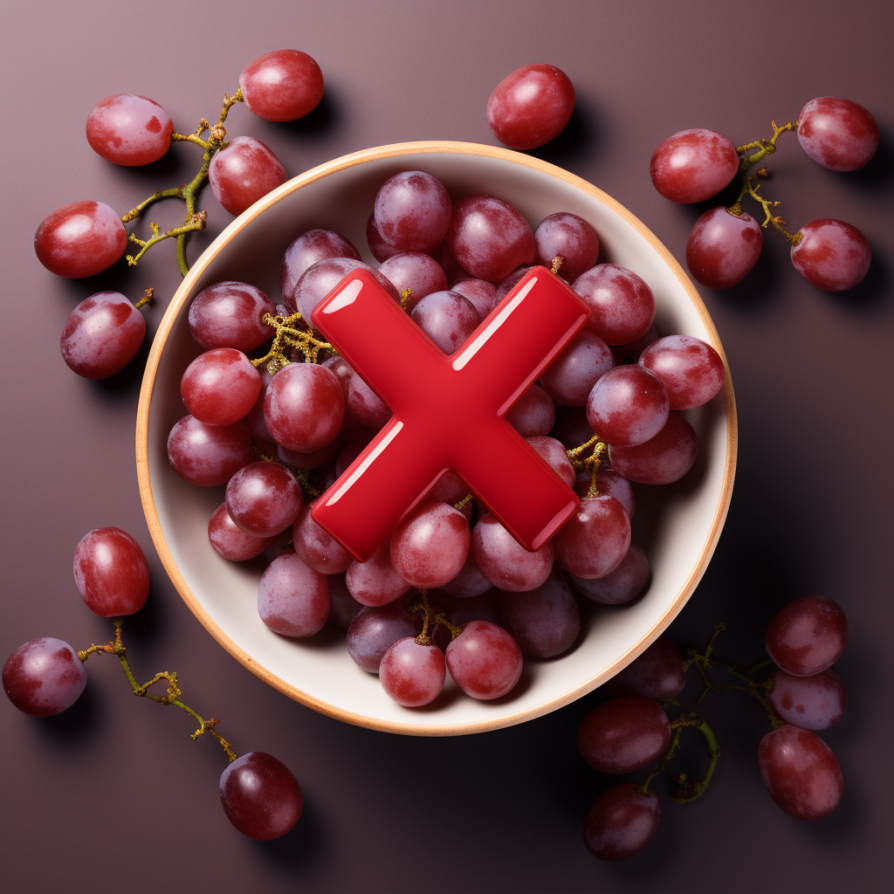
Before feeding your dog any human food, it's important to do your research. Many foods should be avoided, such as chocolate, grapes, garlic, onions, and many more forbidden foods.
Safe Human Food for Dogs
As a responsible dog owner, feeding your dog a balanced diet is crucial to their overall health and well-being. Here are some essential things you should know about your dog's diet:
- Dogs are omnivores, which means they can eat both meat and plant-based foods. However, their diet should primarily be made up of animal protein sources. Of course, this is a general rule - there is a growing pet vegan trend for dogs.
- It's important to choose a high-quality dog food that meets your dog's nutritional needs. Look for brands that use real meat as the first ingredient and avoid foods that contain fillers or artificial preservatives.
- Treats should be given in moderation and not make up a large part of your dog's diet, especially if it’s “junk food” made with processed, low-quality ingredients. According to the book, The Forever Dog, adding just 10% of HEALTHY fruits and vegetables to your dog’s diet can significantly prolong their life.
- A balanced dog diet should include protein, fat, carbohydrates, vitamins, and minerals. Age, breed, and activity level also need to be factored in when deciding on the type and amount of food.
- It's important to monitor your dog's weight. Overfeeding your dog can lead to obesity, which can cause a range of health problems. My Lucy is having to go to Rehab now because the weight she gained from her anti-seizure meds has caused back issues.
- If you're unsure about whether a particular food is safe for your dog, consult your veterinarian or the ASPCA Animal Poison Control Center.
Healthy Human Food Options for Dogs
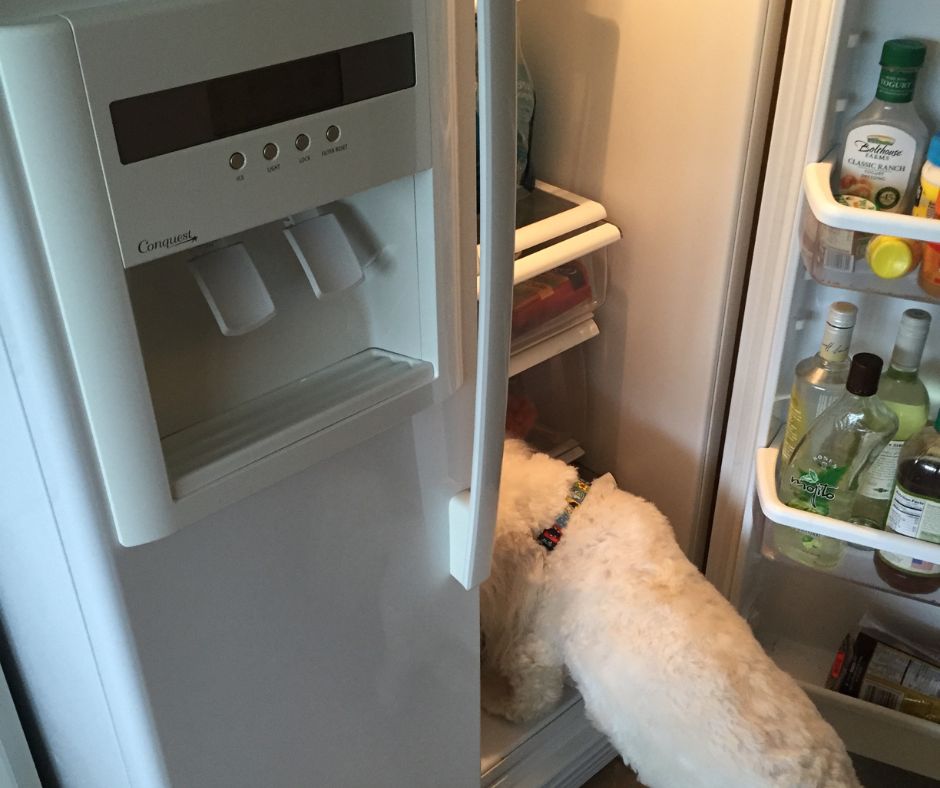
If you're looking for healthy human food options to add to your dog’s diet, consider options that provide your dog with essential vitamins and nutrients needed to maintain their health and well-being. Here are some of the best healthy food options for dogs:
- Green Beans: Green beans are a great source of vitamins and can be a healthy treat for your dog. They are low in calories and can be a good option for dogs that need to lose weight. Lucy’s neurologist told me this was the best treat Lucy could eat to help satisfy her insatiable hunger (due to medication) and to help manage her weight. Thankfully, she loves green beans.
- Sweet Potatoes: Sweet potatoes are a healthy snack for dogs and are a good source of vitamins and nutritional value. They are also contain healthy carbs and fiber.
- White Rice: White rice is a good option for dogs with sensitive stomachs. It should be cooked plain and be used in moderation since it’s high in carbohydrates and can spike blood sugar levels.
- Baby Carrots: Baby carrots are a fresh veggie that can be a healthy treat for your dog. They are a good source of essential vitamins and can help to keep your dog's teeth clean and healthy.
- Homemade Treats: The best way to ensure your dog gets healthy treats is to cook them yourself, so you know exactly what’s in them. Check out these 43 recipes for healthy and easy treats for your dog.
Toxic Foods for the Coton de Tulear
(and all other dogs)
While dogs can eat many human foods, many should be avoided as they can be harmful or even toxic to your pet.
Check out this list of common dog dangers that includes foods that must be avoided.
When in doubt, always check to see if a food is safe for your dog!!
*Click on Link Below to Check if Food is Dog Safe
*Must Have ChatGPT Paid Version (https://chat.openai.com)
Safe Feeding Tips and Precautions
When it comes to feeding your dog, there are a few things to keep in mind to ensure their safety and health. Here are some tips and precautions to follow:
- Introduce new foods slowly: If you're introducing a new food to your dog, start with small amounts to prevent potential digestion issues or adverse reactions.
- Choking hazard: Avoid giving your dog bones, small pieces of food, or anything that could pose a choking hazard.
- High sugar content: Foods with high sugar content, such as baked goods or candy, should be avoided as they can lead to weight gain and upset stomach.
- Unsalted peanut butter: If you're giving your dog peanut butter, make sure it's unsalted and free of xylitol, which can be toxic to dogs.
- Allergic reactions: Keep an eye out for any allergic reactions, such as itching, hives, or difficulty breathing, and consult with your vet if you suspect an allergy. Common food allergens for dogs include beef, chicken, dairy, wheat, eggs, and soy.
- Table scraps: While it may be tempting to give your unplanned dog table scraps, it's best to avoid it as it can lead to weight gain and upset tummy. Incorporate 10% added fruits and vegetables only,
- Undercooked meat: Make sure any meat you give your dog is fully cooked to avoid E. coli or other food poisoning.
- Banana peels: Avoid giving your dog banana peels as they can be difficult for their digestive system to process.
- Plain yogurt: If you're giving your dog yogurt, make sure it's plain and free of added sugar.
- Small portions: When giving your dog people foods, make sure it's in small portions and limited amounts to prevent weight gain and upset stomach.
- High-fat content: Foods with high-fat content, such as bacon or fried chicken, should be avoided as they can lead to weight gain and adverse reactions.
- Lactose intolerance: Many dogs are lactose intolerant, so avoid giving them dairy products.
- Learn from your dog’s reactions: If your dog experiences an upset stomach or adverse reaction to a certain food, avoid giving it to them next time.
- Limited amount: Healthy treats should only make up a limited amount of your dog's diet (10%), so make sure to balance it with their regular high-quality dog food.
Get the Facts About Treats and Snacks
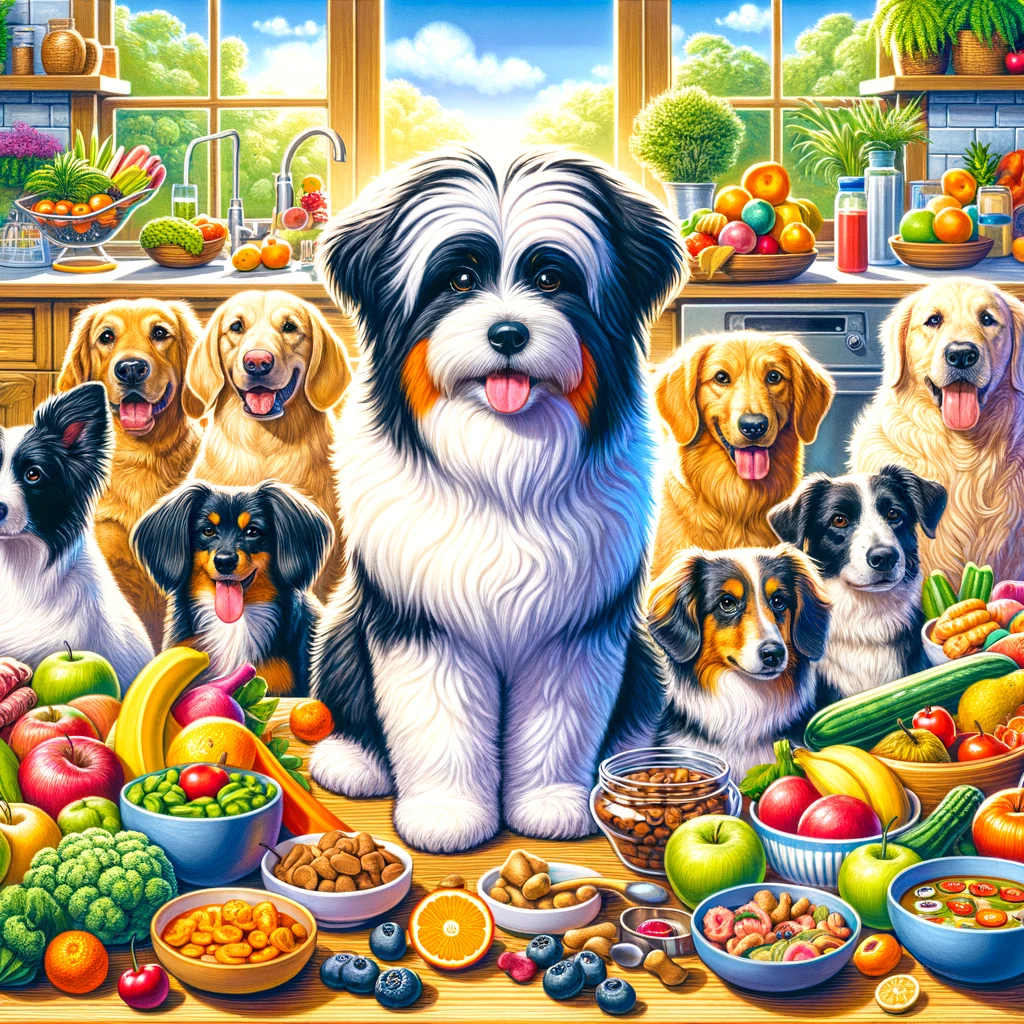
As dog owners, we often equate food with love. I’ve been guilty of this myself. It’s so easy to make my dog happy just by giving her a treat. I’ve learned to be more intentional about which treats to give Lucy as well as how much.
- Some food items that are safe and healthy for dogs to eat include lean meat, fruits such as apples and bananas, and vegetables such as carrots, broccoli, and green beans. These foods provide essential nutrients like protein, fiber, and vitamins that are important for your dog's overall health.
- Fatty acids are also important for your dog's health. Omega-3 and omega-6 fatty acids can help improve your dog's skin and coat and support their immune system. Foods like salmon, tuna, and flaxseed oil are good sources of these fatty acids.
- While raw eggs may be a good source of protein, they can also contain bacteria that can be harmful to your dog's health. It's best to cook eggs before giving them to your dog. But watch for allergic reaction to eggs.
- It's generally best to proceed with caution when it comes to spices and herbs. Many spices and herbs that are safe for humans can be harmful to dogs. Garlic, onion, chives, nutmeg, and cocoa powder should be avoided. Other spices can be safe in small quantities but can cause discomfort if given too much. Always check before giving your dog spices and herbs. Even salt and pepper should be avoided.
- While some human foods like apple seeds (large quantities) can be toxic to dogs, apples themselves are a good idea for a tasty treat. Just be sure to remove the seeds and core before giving them to your dog.
- When it comes to dog treats, it's essential to choose healthy options that won't negatively impact your dog's digestion or immune system. Look for treats that are low in calories and made with natural ingredients. Check out these 43 recipes for healthy and easy homemade dog treats.
Do you have more dog food questions?
Ask you question in form below.
Coton de Tulear Dog Food Questions
Ask your dog food question here or you can answer questions submitted by others.
Your Dog Food Questions and Answers
Click below to see contributions from other visitors to this page...
Looking for dog food recipe 




I need a good dog food recipe I can make for my 5yr Coton. I have tried so many brands and have not been able to find something that my baby and I are …
Home | About Me | Contact Me | Privacy Policy |Disclosure
Copyright© 2008- All Rights Reserved

